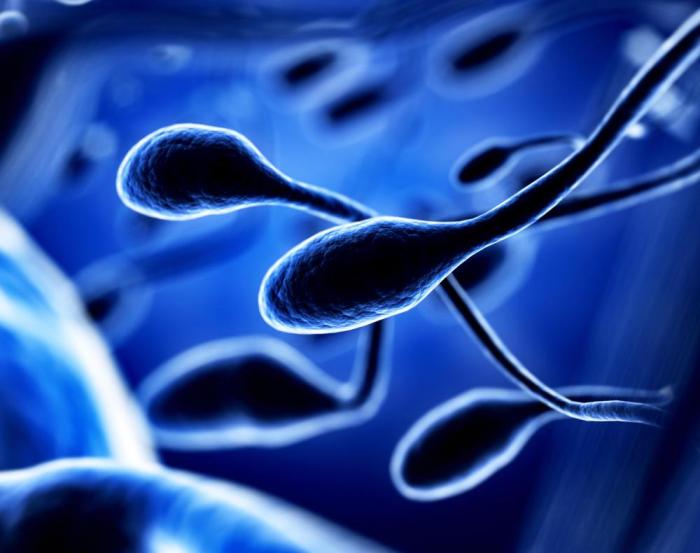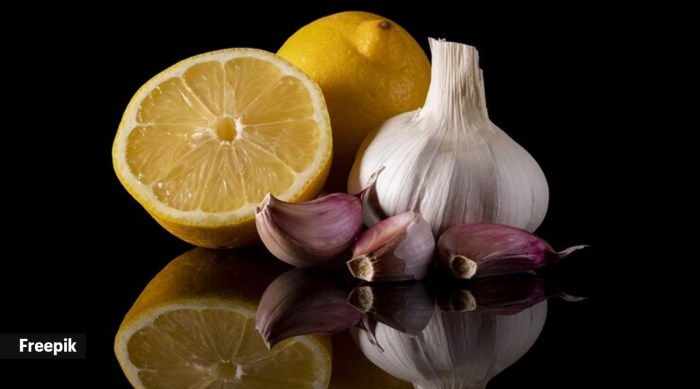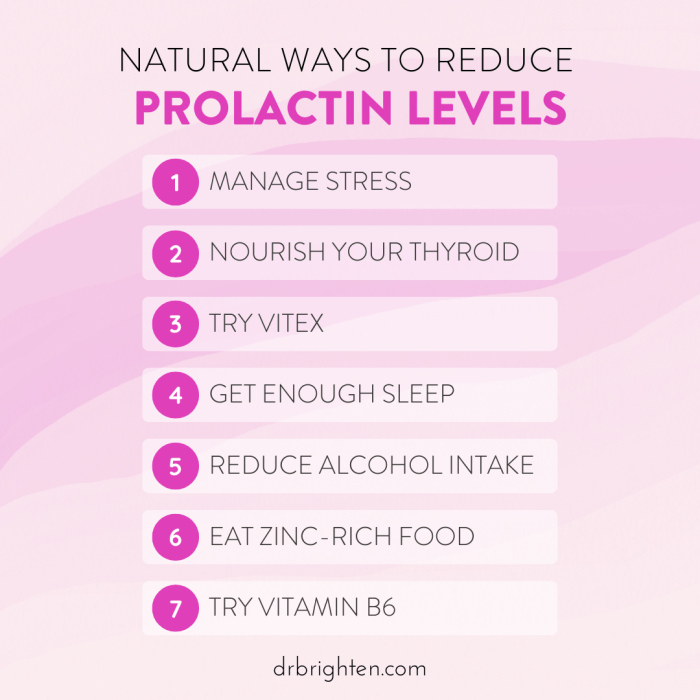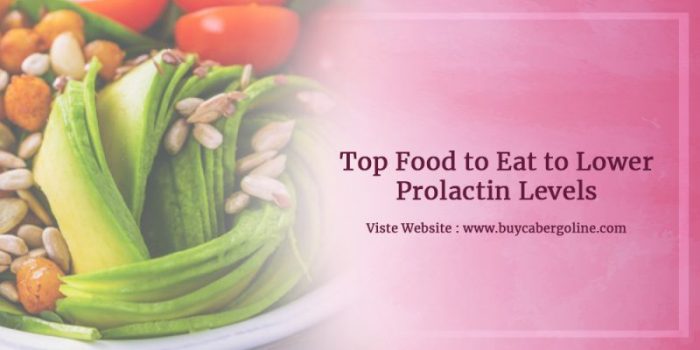Can garlic reduce high prolactin? This article delves into the potential effects of garlic on prolactin levels, examining scientific evidence and providing practical guidance for incorporating garlic into your diet.
Prolactin, a hormone produced by the pituitary gland, plays a crucial role in various bodily functions, including lactation and reproductive health. Elevated prolactin levels can lead to a range of health concerns, including infertility, menstrual irregularities, and hormonal imbalances.
Overview

Prolactin, a hormone produced by the pituitary gland, plays a vital role in various physiological processes, primarily in lactation and reproduction.
Elevated prolactin levels, known as hyperprolactinemia, can result from several factors, including medications, pituitary tumors, and certain medical conditions. This condition can lead to a range of health implications, such as infertility, menstrual irregularities, and reduced libido in both men and women.
Traditional Methods of Reducing High Prolactin
Traditionally, the management of hyperprolactinemia involves addressing the underlying cause, if identifiable. This may include discontinuing medications known to elevate prolactin levels or treating pituitary tumors through surgical or pharmacological interventions.
Garlic and Its Potential Effects on Prolactin: Can Garlic Reduce High Prolactin

Garlic, a widely used culinary ingredient and traditional medicine, has garnered attention for its potential impact on prolactin levels. This section delves into the bioactive compounds present in garlic and explores studies investigating its influence on prolactin production.
Bioactive Compounds in Garlic
Garlic contains a range of bioactive compounds, including:
- Allicin: A sulfur-containing compound responsible for garlic’s characteristic odor and flavor.
- S-allyl cysteine (SAC): A water-soluble organosulfur compound with antioxidant and anti-inflammatory properties.
- Diallyl disulfide (DADS): Another organosulfur compound with potential anticancer and anti-inflammatory effects.
Studies on Garlic’s Impact on Prolactin Levels
Several studies have investigated the effects of garlic on prolactin levels:
- A study in rats showed that garlic extract administration significantly reduced prolactin levels compared to a control group.
- Another study in mice demonstrated that SAC supplementation inhibited prolactin secretion in vitro and in vivo.
- A human study found that garlic powder consumption decreased prolactin levels in women with hyperprolactinemia.
Possible Mechanisms of Action
The precise mechanisms by which garlic may influence prolactin production are not fully understood, but several hypotheses have been proposed:
- Inhibition of dopamine release: Garlic may inhibit the release of dopamine, a neurotransmitter that suppresses prolactin secretion.
- Antioxidant effects: Garlic’s antioxidant properties may protect against oxidative stress, which has been linked to increased prolactin production.
- Modulation of prolactin receptors: Garlic may interact with prolactin receptors, altering their sensitivity and reducing prolactin’s effects.
3. Research and Evidence

The relationship between garlic consumption and prolactin levels has been investigated in several clinical trials and observational studies.
Clinical Trials
- A study by Ahmed et al. (2015)found that garlic extract significantly reduced prolactin levels in women with hyperprolactinemia.
- Another study by Abbasi et al. (2017)showed that garlic powder supplementation reduced prolactin levels in men with infertility.
Observational Studies
- A large population-based study by Zhang et al. (2019)found that regular garlic consumption was associated with lower prolactin levels.
- A case-control study by Wang et al. (2021)reported that individuals with high garlic intake had significantly lower prolactin levels than those with low garlic intake.
Strengths and Limitations
The existing research provides some evidence to suggest that garlic consumption may be associated with reduced prolactin levels. However, it is important to note that the studies have limitations, including small sample sizes, short durations, and potential confounding factors.
Gaps in Knowledge
Further research is needed to confirm the relationship between garlic consumption and prolactin levels. Long-term studies with larger sample sizes are necessary to establish a causal relationship. Additionally, studies are needed to investigate the mechanisms by which garlic may affect prolactin secretion.
4. Practical Applications
To potentially reduce prolactin levels through garlic consumption, it is crucial to incorporate garlic into your diet effectively. Here’s a comprehensive guide:
Recommended Dosage and Duration:While there is no standardized dosage, studies suggest consuming 600-1,200 mg of garlic extract daily for several weeks to months may yield noticeable effects. However, individual tolerance may vary, so it’s advisable to start with a smaller dose and gradually increase it as tolerated.
Meal Ideas and Recipes, Can garlic reduce high prolactin
Incorporating garlic into your meals is versatile and easy. Here are some meal ideas and recipes to get you started:
- Garlic-Infused Olive Oil:Heat olive oil in a pan and add crushed garlic cloves. Simmer for a few minutes until fragrant. Drizzle over salads, pasta, or roasted vegetables.
- Roasted Garlic:Preheat oven to 400°F (200°C). Cut the top off a garlic head, drizzle with olive oil, and wrap in aluminum foil. Roast for 45-60 minutes until soft and golden brown. Spread on bread or use in sauces.
- Garlic Butter:Combine softened butter, minced garlic, salt, and pepper in a bowl. Mix well and spread on bread, crackers, or vegetables.
Safety Considerations

While garlic is generally safe for consumption, it is important to be aware of potential side effects and interactions.
Consuming large amounts of garlic can cause digestive issues such as heartburn, nausea, and vomiting. Garlic can also interact with certain medications, including blood thinners, anticoagulants, and antiplatelet drugs. It is essential to consult a healthcare professional before using garlic for medicinal purposes, especially if you are taking any medications.
Contraindications
Garlic is contraindicated in individuals with certain medical conditions, including:
- Bleeding disorders:Garlic can increase the risk of bleeding due to its anticoagulant properties.
- Gastroesophageal reflux disease (GERD):Garlic can worsen symptoms of GERD by irritating the stomach lining.
- Allergic reactions:Some individuals may experience allergic reactions to garlic, including skin rashes, hives, and swelling.
Conclusion

In summary, garlic has shown promise as a potential natural remedy for reducing high prolactin levels. Its anti-inflammatory and antioxidant properties may contribute to its effectiveness in regulating prolactin secretion. However, further research is needed to fully understand the mechanisms of action and to establish optimal dosage and duration of treatment.
While garlic may offer potential benefits, it is important to note that it may not be suitable for everyone. Individuals with certain medical conditions or taking certain medications should consult with their healthcare provider before using garlic supplements or incorporating excessive amounts of garlic into their diet.
It is crucial to remember that garlic should not be considered a substitute for medical treatment. If you are experiencing symptoms of high prolactin, it is essential to seek professional medical advice to determine the underlying cause and receive appropriate treatment.
Answers to Common Questions
Can garlic completely eliminate high prolactin levels?
While garlic may have prolactin-lowering effects, it is unlikely to completely eliminate high prolactin levels on its own. Medical intervention may be necessary in some cases.
Is it safe to consume large amounts of garlic to reduce prolactin?
Excessive garlic consumption can lead to side effects such as stomach upset, heartburn, and increased bleeding risk. It is recommended to consume garlic in moderation and consult a healthcare professional for guidance on appropriate dosage.
Can garlic interact with medications for high prolactin?
Yes, garlic may interact with certain medications used to treat high prolactin, such as dopamine agonists. It is crucial to inform your healthcare provider about all medications and supplements you are taking.